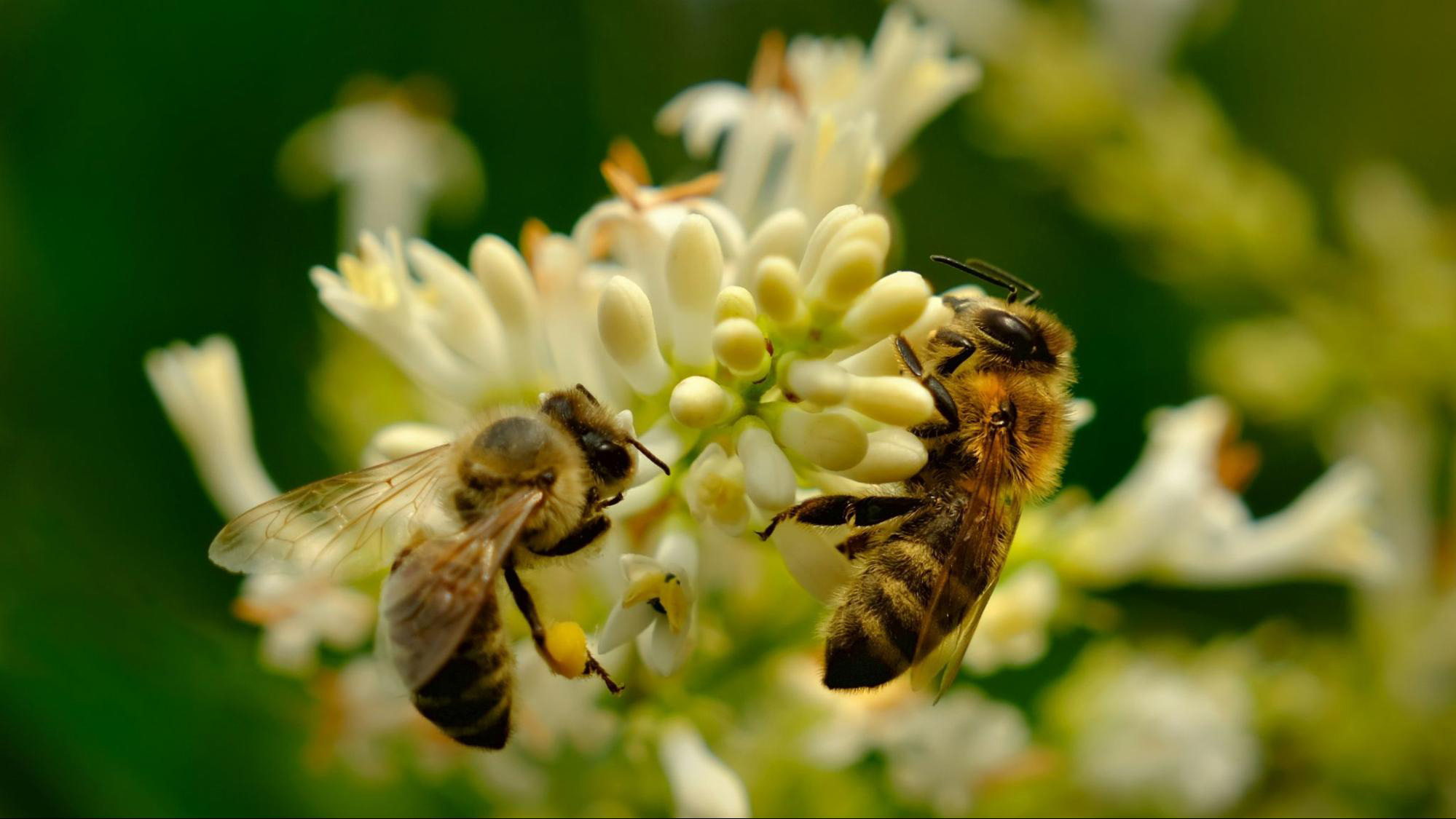
12 May May’s Action: Help Pollinators With No Mow May
Spring is in full bloom, and May is the perfect time to embrace one of the most impactful environmental movements of the year—No Mow May. This simple yet powerful initiative encourages homeowners to skip mowing their lawns throughout May, creating vital habitats for pollinators like bees and butterflies, boosting biodiversity, and helping combat climate change.
Why May? The Magic of the Month
May is a pivotal month for pollinators emerging from hibernation and early bloomers waking up to the sun. Allowing grasses and wildflowers to grow during this time offers essential nectar and pollen sources for bees, butterflies, and other crucial wildlife. It’s a window of opportunity to support these vital species during their most active period and to kick-start a healthier, more balanced ecosystem right in your own backyard.
THE ENVIRONMENTAL BENEFITS
- Supporting Pollinators: A wild lawn provides much-needed food for bees and butterflies during their early-season rush, helping boost their populations. Pollinator Partnership – Why Pollinators Matter
- Biodiversity Boost: Letting nature take its course attracts a variety of insects, birds, and other wildlife, enriching our local ecosystems. The Nature Conservancy – Benefits of Biodiversity
- Reducing Carbon Footprint: Less mowing means fewer emissions from fuel-powered lawn machines, making your yard more eco-friendly. EPA – Lawn Mower Emissions
- Enhancing Soil & Carbon Capture: Taller grasses and native plants improve soil health and sequester more carbon, contributing to climate change mitigation.
USDA – Soil and Carbon Storage - Simplicity & Savings: No Mow May reduces your yard work and expenses, giving you more time to enjoy your garden’s natural beauty.
No Mow May or Low Mow May?
“I heard that “No-mow May” is more harmful than reducing the amount of mowing, or “Low-mow May”, which would increase the number of pollinator plants in the lawn. Which is correct?”
This question was asked to the University of Maine Cooperative Extension, “Ask the Expert” section. Read their answers here and make your own decision.
Watch this video from NewsCenterMaine to hear coverage of No Mow May in Maine.
Balancing Nature and Safety: Tips for Tick Prevention
We understand concerns about ticks, especially when leaving lawns taller. Here are some practical tips to enjoy the benefits of No Mow May safely:
- Wear Protective Gear: When gardening or walking outdoors, opt for long sleeves, pants, and closed shoes. Tucking pants into socks can prevent ticks from attaching.CDC – Ticks and Tick-borne Diseases
- Stick to Clear Paths: Use designated walkways and mow some areas for safe access, minimizing contact with dense grass or wildflowers. EPA – How to Reduce TickHabitat
- Apply Natural Barriers: Consider natural tick deterrents such as diatomaceous earth along yard edges. Penn State Extension – Tick Control
- Create Tick-Safe Zones: Keep high-traffic areas mowed short and close to your home to reduce tick habitats nearby. CDC – Tick habitat tips
- Check, Check, Check: After outdoor activities, thoroughly inspect yourself, children, and pets for ticks—removing them promptly is the best defense against disease. CDC – How to Remove a Tick
Beyond No Mow May – Other Ways to Make Your Garden Pollinator Friendly
You might want to consider:
- Turn your traditional lawn into a wildflower meadow—an ecologically smart and climate-friendly choice that provides critical habitat for pollinators and contributes to carbon sequestration. This low-maintenance approach enhances biodiversity while helping mitigate climate change impacts.
- You also might want to consider the ecological benefits of planting native in your garden. Planting native plants is a powerful nature-based solution to combat climate change and enhance environmental health. By choosing plants that are adapted to the local environment, we can create landscapes that sequester carbon, reduce emissions, support biodiversity, conserve water, and build healthier soils, all of which contribute to a more resilient and sustainable future. You can learn more in our April 2025 blog on Planting Native.
- Ditch your gas-powered garden tools and check our eco-friendly tools from Freeport’s Tool Library. Town of Freeport to Launch an Electric Tool Lending Library! The launch of Freeport’s Electric Tool Lending Library this spring will give residents an opportunity to borrow tools that make working in the garden easier and more climate friendly. The tool lending program will be open to Freeport residents 18 years of age and older. Equipment may be borrowed for a few days for residential use. Reservations will be made using your Freeport Library Card. Ego string trimmers, cordless blowers,hedge trimmers and a mower will be available to borrow. Visit Freeport, Maine for updates on available equipment and complete details on how the program works.
Our collective voice and actions this May can make a real difference. Support pollinators, reduce emissions, restore ecosystems, and stay safe from ticks.
The climate crisis calls for urgent, sustained action. Your yard can be a front line in this fight. Let’s make it count.
JOIN US. BE PART OF THE SOLUTION


